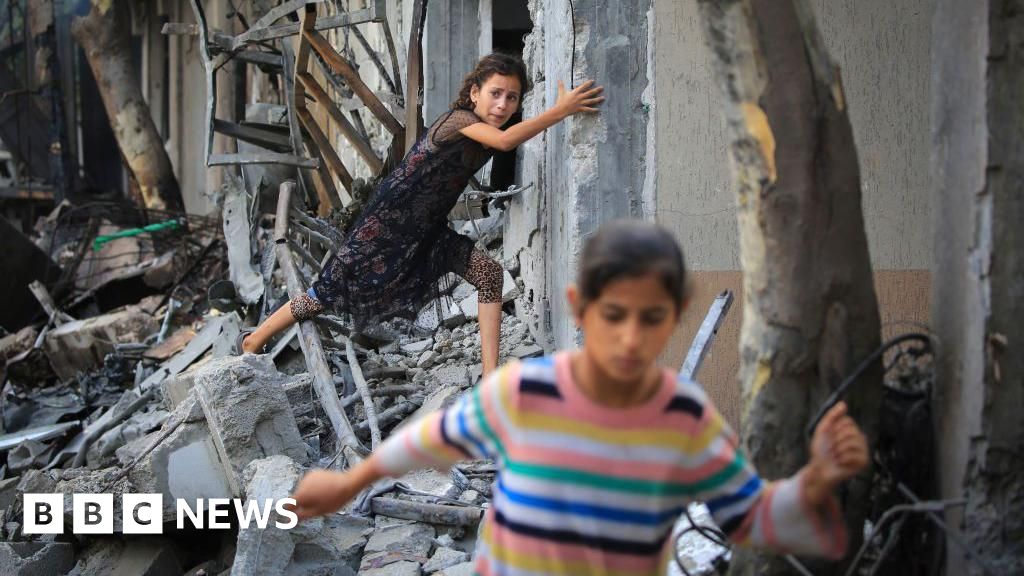Image source, Getty Images
- Author, Ana Faguy
- Role, BBC News, Washington
-
The United Nations Security Council has voted to support a US-proposed Israel-Gaza ceasefire plan.
It sets out conditions for a “full and complete ceasefire”, the release of hostages held by Hamas, the return of dead hostages’ remains and the exchange of Palestinian prisoners.
Fourteen of the 15 Security Council members, including the US, voted in favour of the resolution. Russia abstained.
The resolution states that Israel has accepted the ceasefire proposal, and urges Hamas to agree to it, too.
The plan has three phases that would end with a major reconstruction plan for Gaza, which has been largely destroyed in the conflict.
The first phase of the plan concerns a hostage-prisoner swap as well as a short-term ceasefire.
The second phase includes a “permanent end to hostilities”, as well as a full withdrawal of Israeli forces from Gaza, according to a text of the US draft resolution.
The third phase focuses on the enclave’s long-term outlook, and it would start a multi-year reconstruction plan for Gaza.
Monday’s resolution comes weeks after President Joe Biden said the Israelis had agreed to a three-phase plan that would result in a permanent ceasefire in Gaza.
Israeli Prime Minister Benjamin Netanyahu has publicly rebuked parts of the resolution, and repeatedly said he plans to proceed with military operations until Hamas is destroyed.
President Biden’s account on X, formerly Twitter, noted the passage of the resolution.
“Hamas says it wants a ceasefire,” the post said. “This deal is an opportunity to prove they mean it.”
Linda Thomas-Greenfield, the US Ambassador to the UN, said: “Today we voted for peace”.
UK Ambassador Barbara Woodward described the situation in Gaza as “catastrophic”, adding that the “suffering has gone on for far too long”.
“We call upon the parties to seize this opportunity and move towards lasting peace which guarantees security and stability for both the Israeli and Palestinian people,” Ms Woodward said.
While the US had previously vetoed similar measures, it did not veto the March resolution.
Mr Netanyahu said at the time that the US had “abandoned” its prior position linking a ceasefire to the release of hostages.
The conflict began when Hamas attacked southern Israel on 7 October, killing about 1,200 people and taking some 251 people hostage.
The Hamas-run health ministry says the death toll in Gaza has surpassed 37,000 since Israel responded to its attack.
#Security #Council #backs #IsraelGaza #ceasefire #plan,
#Security #Council #backs #IsraelGaza #ceasefire #plan
